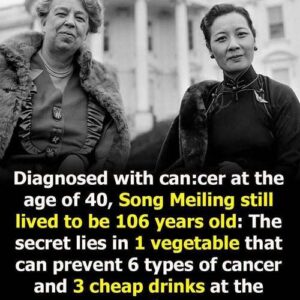All I wanted was my dream wedding—and I got it.
I paid for everything: the venue, flowers, photographer. My parents helped a little, but the day was mine. So when my new husband did what he did at the reception—right in front of everyone—I didn’t yell. I didn’t cry. I just got up and left, silently.
And I never looked back.
Because cheating isn’t the only thing that breaks vows—humiliation can, too.
Lucas and I had dated for three years. We weren’t perfect, but we loved each other. We bonded over morning hikes, weekend brunches, and old noir films. But when we argued, it was intense.
The biggest issue? His obsession with pranks.
He thought they were hilarious.
To me, they were immature and cruel.
Still, I brushed it off—again and again. I convinced myself that love meant compromise. I told myself I could endure another “funny” prank or laugh off another one of his overpriced “gotcha” jokes.
So I swallowed my discomfort. Bit my tongue. Played along.
When we got engaged, I took full control of the planning. I managed the budget, vendors, and logistics. My parents helped, but it was mostly on me.
Lucas’s involvement? Occasionally saying, “Whatever you think is fine,” and sending out half the invitations—late.
But I let it go. I believed he’d show up for me when it mattered most.
On our wedding day, I felt beautiful.
My mom pinned my side braid with pearls. I wore soft, elegant makeup—not for photos, but for myself. I wanted Lucas to see the effort I put into making this day perfect for both of us.
The ceremony was sweet and intimate. I cried during the vows. Lucas didn’t. But he smiled like he meant every word, and for a brief moment, I believed in us.
Then came the reception.
Laughter, champagne, dancing in the garden.
I was floating through the perfect day—until it was time for the cake.
It was a gorgeous, three-tiered buttercream cake, decorated exactly the way I imagined. As the crowd gathered, someone shouted, “Let the bride cut the first slice!”
I stepped forward, smiling.
And then—I felt a hard shove from behind.
Before I could process what happened, my face slammed into the cake.
Buttercream clogged my nose. Frosting blurred my eyelashes. My veil stuck to the mess, my makeup ruined. My chest heaved in disbelief as I stood there, humiliated.
At first, there was silence. Then came the laughter.
Louder and louder, led by Lucas, who beamed like a child proud of a prank.
“Come on!” he said, nudging me. “It’s just a joke, Jules!”
I turned slowly to face him, my body trembling.
I had told him—so many times—no pranks. Not today. Not ever.
Especially not today.
There I stood, drenched in frosting, humiliated in front of everyone I cared about.
Someone handed me a napkin, without meeting my eyes. I fled.
I didn’t know where I was going. I didn’t care.
Tears blurred my vision as I stumbled away, until I saw him—a caterer by the door.
Young, calm, kind eyes.
He didn’t ask questions. He just reached into his apron and handed me a clean cloth napkin.
I wiped my face without speaking.
He didn’t pity me—just nodded, as if to say:
You don’t have to stay here. You can leave.
So I did.
Hours later, I sat in our apartment in my ruined gown. Frosting still in my hair.
Lucas came in, tossed his keys on the dresser, and looked at me.
No apology.
No concern.
Just irritation.
“You embarrassed me back there,” he muttered. “It was just a joke. God, you’re so sensitive.”
I stared at him. “I told you how I felt about pranks. You promised not to.”
He rolled his eyes. “It was harmless, Juliette. You survived.”
That’s when it hit me.
This man didn’t care that he’d humiliated me.
He only cared that I hadn’t played along.
I filed for divorce the next morning.
He didn’t fight.
Didn’t apologize.
Didn’t even seem surprised.
“Fine,” he shrugged. “I guess I don’t want to be married to someone who can’t take a joke.”
My parents weren’t shocked. They were heartbroken, but not surprised. They had seen how hard I tried to make that relationship work.
In the weeks that followed, I vanished.
I threw away the wedding photos.
Ignored phone calls.
Skipped dinners with friends.
My apartment felt like a bunker. I was emotionally drained—like I’d spent every ounce of myself trying to be loved the right way.
Eventually… I began to return.
I painted again—messy, colorful, joyful.
I took slow walks. I cooked garlicky meals.
I filled my home with things that made me smile again.
One night, scrolling Facebook, I got a message:
“Hi. You probably don’t remember me. I was a server at your wedding. I saw what happened and just wanted to say—you didn’t deserve that.”
It was him.
The waiter with kind eyes and a cloth napkin.
His name was Caleb.
I didn’t know what to say. So I typed:
“Thank you. That means more than you know.”
I didn’t expect a reply.
But he wrote back the next day.
And again the day after that.
We talked about books, music, childhood memories.
He was studying clinical psychology and worked events to pay tuition. He remembered details. He asked thoughtful questions.
When I told him I was painting again, he said: “I hope it brings you back to yourself.”
We met for coffee.
Then dinners.
Then bookstore dates and late-night walks with soft jokes and real laughter.
One night, sitting on the floor eating greasy takeout, I told him the whole story—from the first “harmless” prank to the buttercream face.
He listened.
Held my hand.
And whispered, “You deserved better than all of it.”
Years have passed.
Today, Caleb and I celebrate nine years together.
We live in a cozy house with a yellow front door. We plant tomatoes every spring—even though we’re terrible gardeners. On rainy nights, we still watch old noir films.
He now works with trauma survivors, helping people rebuild their lives.
Sometimes, I’ll be dancing in the kitchen, sleeves rolled up, music playing, and Caleb will wrap his arms around my waist and whisper:
“You still look better than that cake.”
And I laugh.
Not for show.
But because now…
I know what love really feels like.





